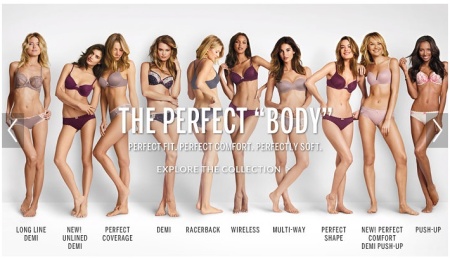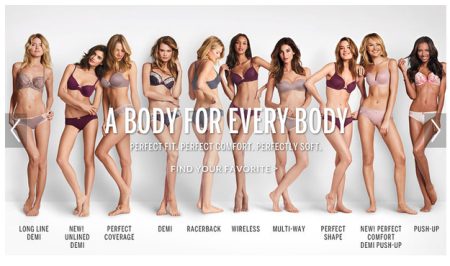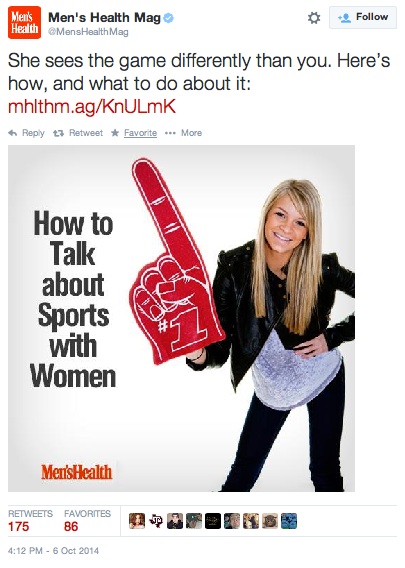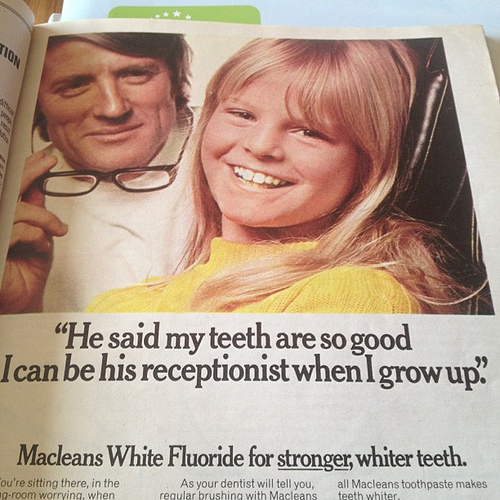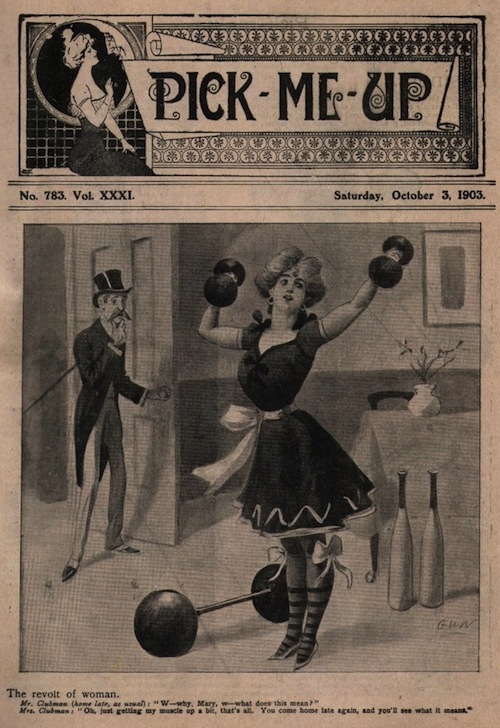In an online community I’m part of, there has been a slight trend of men posting pictures in stereotypically “feminine” selfie poses. The examples I’ve seen recall the “male super heroes posed like female super heroes” images that have become popular recently. I don’t love this imagery. It can be done with good production values, as in this Ducati shoot (interestingly, the various men wear – with differing degrees of success – the same pair of shoes in all 13 shots):
It can also be done very deliberately and with apparently good intentions, as in this project by photographer Rion Sabean, called “Men-Ups”:
But does anyone believe this kind of project makes progress “reversing the stereotypes created by society, begging the questions; why is it sexual for a female to pose one way, and not sexual for a male?” Worse, does anyone truly not already know “Why is it considered more comical or unsettling for males to act the more socially defined feminine?” (Quotes from Sabean’s project statement.)
The reason these are treated as “comical” or “unsettling” instead of hostile or contemptuous is that the makers tell us they are completely in on it from the beginning – they aren’t just telling one of their classmates on the schoolyard that he “throws like a girl!” and then sneering at him for it. The photos still show parodies of feminine poses, and derive their “comical” or “unsettling” power from the ridiculousness of seeing men in them, especially when they appear to be in drag. They invite us to make fun of femininity but don’t sincerely ask us to question the validity of feminine prescriptions when the object is female. When women are in those poses, it is just as ridiculous, but does anyone come away thinking that? I mean, anyone who didn’t arrive already thinking that?
I can’t help feeling like we’re going about this the wrong way with these “mash-up” photos. If our desire is to question the prescriptions, why not simply do that — step up and produce images that set aside the window-dressing of those stereotyped images and take aim squarely at their goal: typically showing women as sexy and sexually available (vs typically showing men as subjects, actors, takers of control — and of course of women).
For example, take this sexy librarian:
The power of the Men of the Stacks calendar lies in the simple fact that while the images have sexual appeal, they are not parodies of feminine styling or poses, nor are they especially stereotypically masculine, for that matter (yet without the smooth, “small” styling that makes even bearded men look slight and child-like in the Men-Ups!, adding another, troubling dimension to their ambivalence). Zack, above, features in the sexiest photo, the most overtly sexual, and it’s just plain gorgeous. It helps that he has a fairly pretty face, but his body is thoroughly masculine, and his pose, while not the typical stilted, symmetrical stance that men often adopt in candid photos, isn’t the demeaning, “presenting” angle that invites the viewer to laugh at Manigale and Men-Ups!
In discussions about this subject within fandom, I see women make comments praising what I’ve described as parody treatments as “cathartic,” welcome after “dealing with this shit” — referring to the way female characters are often treated, particularly in “fan service” (using deliberately sexual objectification to titillate [male] fans). I understand, and I find these images interesting and link-worthy myself, but women also participate directly in perpetuating the stereotypes that support sexist, prescriptive representation. How could we not, raised as we are in a society in which it is utterly endemic and often provides the shape of what constitutes “attractive” to the people among whom we seek our romantic partners? I completely understand the “turnabout is fair play” desire here, and I hope it is but one small step in a larger journey for women of meaningfully rejecting the prescriptions for feminine posing.
We may have a lot of ideas about “what [straight] boys like,” and boys may say a lot of things, but at the end of the day, a lot of boys mainly just like girls. We have power to create opportunities for ourselves — with our phones and social media accounts — to shift the representation of women, while staying in touch with what makes us feel attractive. I would love to see a different mix of poses diffuse out among the countless self-portraits that flood the social networks. Not women posing in stereotypically masculine ways (although that has cathartic value as well), but women posing more naturally, more simply, less apologetically, less tentatively. Women just dropping the “wide-eyed, slack-jawed” softcore porn faces that decades of unironic pin-ups have left us with, and looking like they are at home as the subjects of their photos, instead of a little baffled by the props that surround them.
